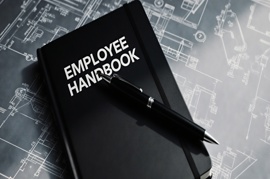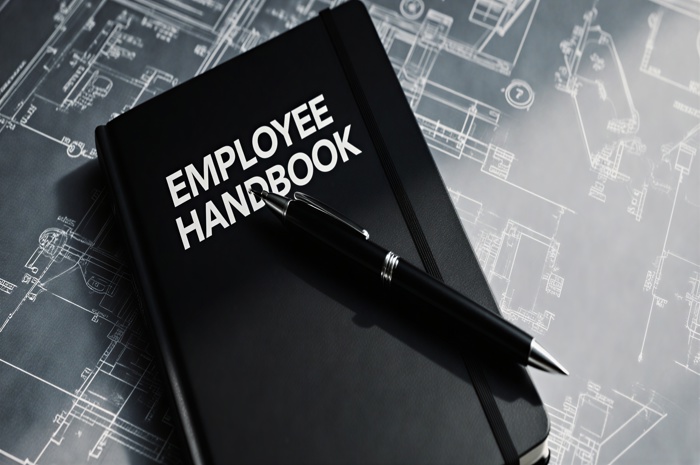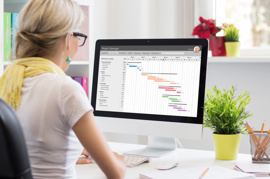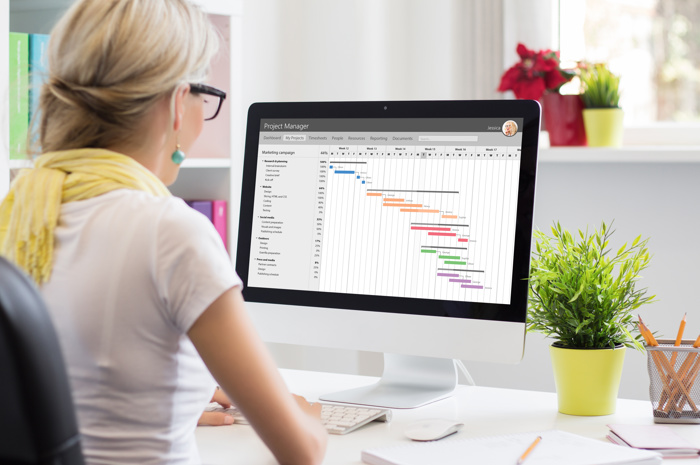When you start up a new business, you are required to keep track of your company's finances and income and expenditure as the director. But it can be an overwhelming task if you don't know where to start! So, let's break it down for you:
Business Bank Account
The first key to keeping track of your company's income and expenditure is by opening a business bank account. All of your company's transactions should be made using this bank account, no matter whether it is income or expenses, rather than using your personal bank account. This makes it much easier to track all the money that has come in to and has left the company, which is necessary for when you are completing your end of year returns.
It can be a lot harder to track when using a personal bank account, as you will need to ensure that you separate your company's expenses from your personal ones when completing your returns. So, with a business bank account, you can be assured that all transactions are related to the business' activities. Although in the early days of trading, this can be difficult particularly with expenditure.
When making payments (such as via bank transfer), it is also important to remember to add a relevant reference so that you are aware of where the money was sent and why. This helps when you have to categorise your income and expenditure later on.
Book-Keeping
The next step when recording your business' income and expenditure is to keep track of your company's transactions by using a spreadsheet, or book-keeping software, etc. This is important as you will need to keep track of all the business' transactions as well as categorise them in order to complete your annual filings.
Spreadsheet:
Excel, or any other type of spreadsheet software, is a really useful tool for keeping track of your income and expenditure. Using this, you can write down each of the transactions and then categorise them smoothly. One way of doing this, for example, is to look through all of the bank statements from your business bank account and write them down (a line per transaction). Then, you can write a short description (or category title, etc.) next to the item, which will make it easier to filter and sum up your transactions later on.
Book-keeping software:
There are a lot of book-keeping software companies available nowadays which can help you keep track of your business' income and expenditure (such as Xero, Quickbooks, etc.). These may be useful tools that can help you keep track of your income and expenditure by producing an income statement and balance sheet in PDF format, which you can then use to help you complete your filings, either yourself, or through our software.
Our book-keeping add-on:
If you choose to file your returns through Easy Digital using our Managed Filing option, where one of our accounts specialists will complete the returns for you and then submit to HMRC or Companies House upon your approval, then we do also offer a book-keeping add-on. With our standard managed filing (which covers submissions of CT600 returns with full accounts to HMRC and annual accounts to Companies House for one accounting period), you will either need to provide an income statement and balance sheet produced by your book-keeping software, or a spreadsheet with the income and expenditure on it (typically categorised). However, we understand that not everyone is able to provide this, so we do also offer this add-on where you can send us bank statements instead and we will produce your income statement and balance sheet based on these figures.
Our standard managed filing package for a micro company is called the Managed Micro Filing Service package, and costs £299 + VAT. Our standard managed filing package for a small company is called the Managed Filing Small Company package , and costs £599 + VAT. If you were interested in upgrading your package to include our book-keeping service as well, then you will need to purchase the Managed Filing Book-keeping Work package (reference MFBK-25), which costs £150 + VAT.
You can find all these packages and more at easydigital.tax
What happens if I was using my personal bank account to pay for the company's expenses?
Don't worry! It's not the end of the world if you were paying for business expenses out of your personal bank account, as it is understandable if it may have taken a while to open the business bank account, or maybe you were unsure how to do so, etc. In future, it is best to have a separate bank account for your business, however, here is how to account for personally paid business expenses in your company accounts:
Income Statement:
All business-related expenses, whether they came out of a personal or business bank account must be accounted for on the income statement for the accounting period that the expenses were made in. You will need to note which expenses have been paid from the personal bank account as this figure will need to be noted separately on the balance sheet.
Balance Sheet:
All business-related expenses that were paid personally will be considered as a loan from the director to the company, and will therefore need to be considered as a creditor due for the company in the balance sheet. It is up to you, as the director, to decide whether this should be considered as a creditor due within one year or as a creditor due after more than one year.
If you are unsure about how to account for loans, this article called 'How to Report Loans and Bank Loans in Your Account' may be useful!
What about if I paid for my personal expenses through the business' bank account?
If you, the director, have paid for personal items using the business' bank account, then it is either considered as a loan from the company to the director, or, as dividends that the director has taken.
Directors Loan:
When the director pays for personal expenses through the business' bank account then it can be considered as a director's loan from the company to the director. When this happens, it does not need to be recorded on the income statement, and instead, just recorded on the balance sheet as a current asset for the company.
However, when completing your CT600 return, depending on how much the loan is, you may need to complete the CT600A form as well. This form indicates that the company has made a loan to the director; and both the company and the director may be required to pay additional tax on the loan.
If the director paid the loan back to the company within the same period that the loan was taken out, then this does not need to be recorded on the balance sheet, but you may still be required to complete the CT600 A form. For more information on this, please check out our article 'How to Record a Directors Loan Account in your CT600'.
Dividends:
Another way to consider personal expenses that have been paid through the business' bank account is to account for them as dividends taken by the director. These expenses are also not reflected on the income statement and are just reflected in the balance sheet in the capital and reserves figure. However, the director must declare the amount of dividends paid to them in their self-assessment return for that year.
For more information on how to account for dividends, please feel free to check our this article 'Dividends in Micro Company Accounts'.
Summary
To conclude, as the director of the company it is your responsibility to keep track of your business' income and expenditure in whichever way is easiest for you. A business bank account is a great tool for keeping track of your company's finances as it can help ensure that all the income and expenses paid to or from that account is related to the business. In addition to this, some type of book-keeping tool is another great way to keep track of all business-related transactions - this might be in the form of a spreadsheet, book-keeping software, or even an accountant who will complete the book-keeping for you.
If you are unsure about whether opening a business bank account is the right move for you and your business, then you may find this article 'Should I open a Business Bank Account for my Limited Company?' useful! It discusses what a business bank account is and the benefits of having one for your company.





















